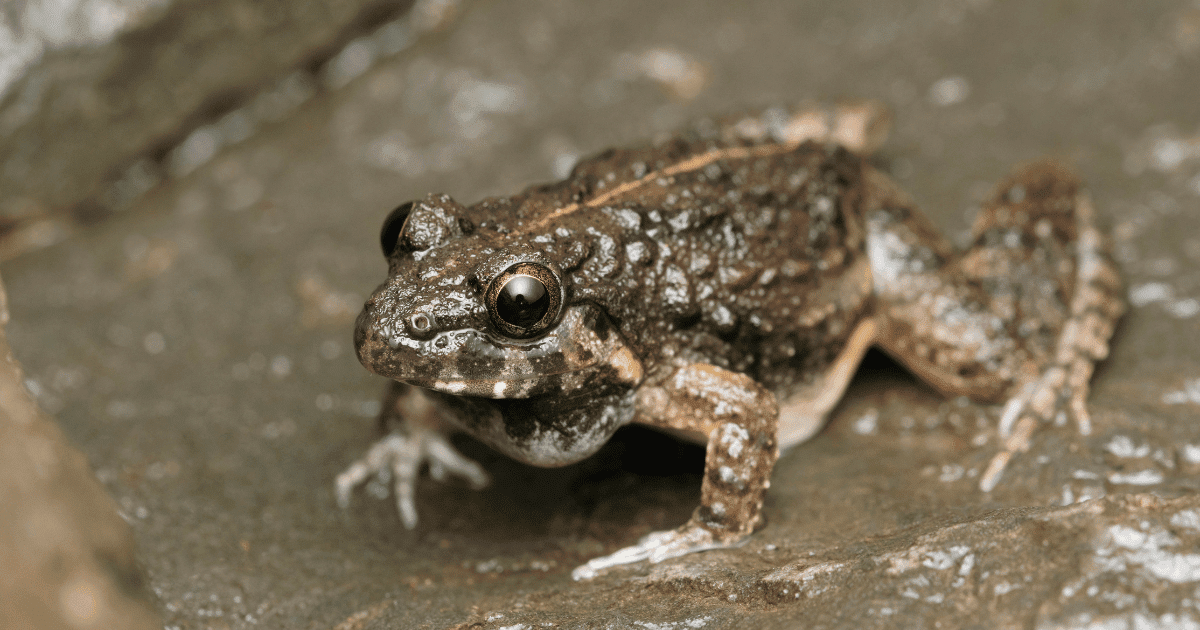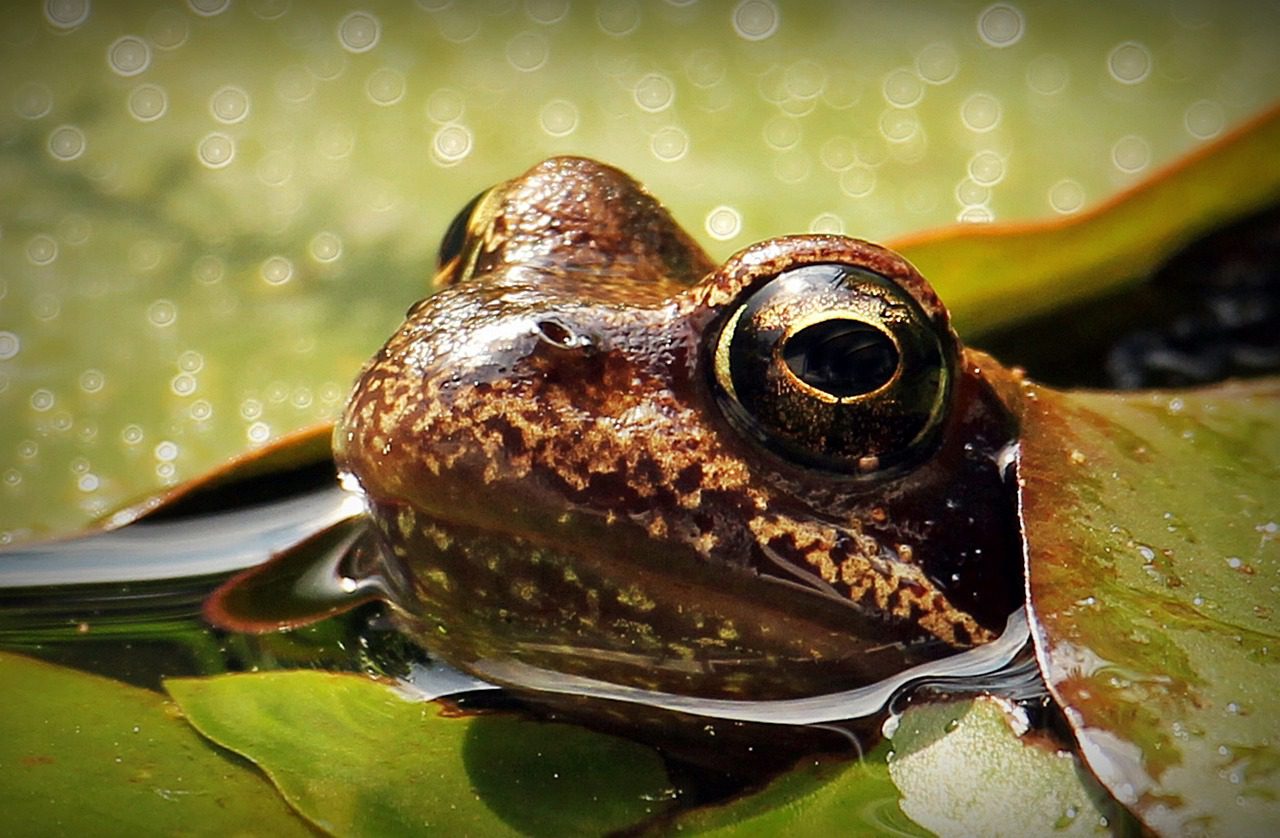Do frogs really give you warts? Dive into the truth behind this commonly held belief and find out what science says about frogs and warts.
Do Frogs Give You Warts? Let’s Dissect the Myth

For years, people have been bouncing around the notion that frogs may cause warts on you. The idea that frogs may spread something as unpleasant as a wart doesn’t seem too far-fetched, given how frequently people associate frogs with filth and slime.
It was simpler to attribute observable issues like warts to something we needed to understand when science wasn’t fully developed. However, the year is 2023, and our knowledge of frogs and warts has advanced significantly.
Human papillomavirus (HPV), in particular, is the virus that causes warts. The virus that causes warts to appear on your skin is human, not froggy. Direct contact with a wart or touching objects like a towel or a doorknob touched by someone with warts are the two ways HPV can be transmitted.
In light of this, you may be sure that the next time you see a wart, it wasn’t caused by a froggy encounter.
What Causes Warts, Anyway?
So, let’s take a brief detour into science. Frogs have glands that release irritant or slimy substances, but these compounds are not viral and cannot result in warts. Many of these fluids serve as a frog’s protection mechanism against predators. Researchers have examined the frog and toad skin but haven’t discovered anything that could be the source of warts in people. It follows that the answer to the question “Do frogs give you warts?” is a definite no, supported by sound research.
Do Frogs Give You Warts? The Science Says No
And what about toads? After all, they appear to be more warlike than frogs. Toads have glands on their skin, not warts, so don’t worry. Contrary to warts, which are transferable to people, these glands can emit unpleasant or toxic compounds to predators. According to the same regulation, they don’t give you warts whether you eat a frog or a toad.
Frog Safety 101
It’s a good idea to wash your hands after handling frogs, even if they don’t cause warts to develop on your hands. If you eat a frog, you could become ill from bacteria they may have, including salmonella. Always wash your hands with soap and water after touching a frog or being in its habitat.
Why Debunking Myths Matters
Why is it crucial to dispel urban legends like “Do frogs give you warts?” due to the impact that false information can have on how we view the world? We may be less motivated to value frogs and their function in ecosystems if we think they could give us warts. Frogs serve as prey and predators in their native environments, making them an essential component of our planet. A more peaceful coexistence with our amphibious friends results from knowing the facts.
More Fun Frog Facts to Know
Now that the question of whether frogs cause warts has been answered definitively (spoiler alert: they don’t), let’s move on to more fascinating tidbits about these remarkable animals. Your appreciation for frogs will grow due to learning more about them, and you’ll be better equipped to dispel any additional fallacies you may run into.
Frogs Are Worldwide Wonders
From the sweltering rainforests to the chilly temperate regions—frogs can be found anywhere. Frogs come in more than 5,000 different species, each with distinct traits like colors, sounds, and behaviors. So the next time someone asks, “Do frogs give you warts?” you can answer them truthfully and impart more information on how many and diverse frogs are!
Frogs Are Ecological Indicators
These fantastic beings are frequently regarded as ecological indicators, which means they let us assess the condition of an environment. Due to their permeable skin, they are vulnerable to environmental changes, including pollution and temperature changes. The ecology frequently suffers when the frog population does, and vice versa. They, therefore, play a crucial role in how we perceive nature.
Frogs in Culture and Mythology
Frogs have long played a significant part in the myths and folklore of many different civilizations, even though scientists have disproved the notion that they cause warts. The frog represented life and fertility in pre-dynastic Egypt. It is frequently linked to purification and regeneration in Native American cultures. Frogs form a part of our myths and beliefs in addition to being a part of our surroundings.
The Amazing World of Frog Calls
Frog sounds are among the features that make them the most identifiable. Each species has a distinctive sound that can be utilized for various things, like luring a mate or warning of impending danger. You can hear particular frog cries from up to a mile away! Another element of our attraction to these species is the variety and complexity of their calls, which are objects of research and awe.
Frogs in Modern Research
Frogs do more than give you warts—they significantly contribute to science. Some species produce compounds with therapeutic qualities, including those that could be used to treat certain types of cancer and diseases. Frogs, therefore, don’t only not cause warts on humans; they may even be able to assist us in unanticipated ways.
Conclusion:
Frogs do not cause warts, so let’s put that to rest once and for all. No frog or toad will give you the human papillomavirus, which causes warts. You will be armed with the information to dispel the myth that frogs cause warts the next time someone questions you.
Keep the facts straight, even if frogs have a unique position in our mythology and civilization. You are prepared to overcome this persistent illusion since knowledge is half the battle. Maintain your curiosity, continue your education, and, most importantly, be fascinated by the world around you.
Hello! I’m Javed, a versatile content writer specialized in various niches, with a particular passion for home and garden topics. My expertise extends beyond writing—I’m also skilled in SEO and WordPress development, boasting over four years of experience in these areas.
